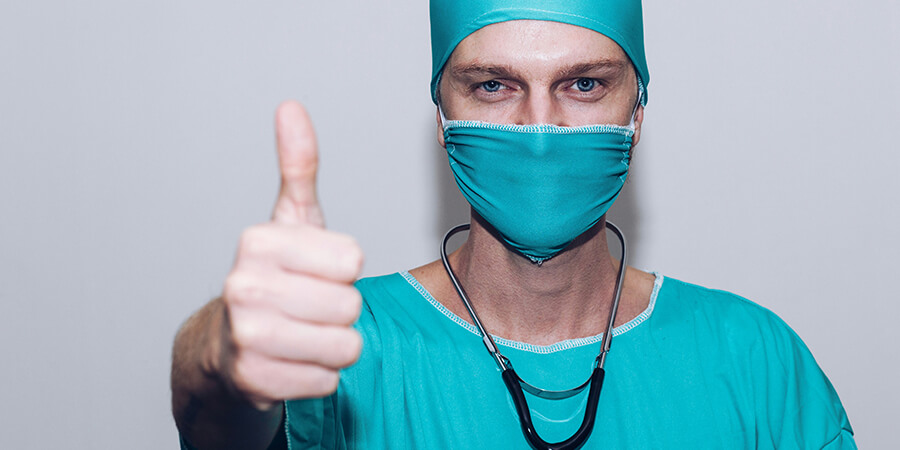8 Requirements You Need
to Pursue a Medical Career
See also: Careers in Healthcare
Before setting out on a rewarding medical career journey, one should plan with care and adhere to certain requirements. Physicians ideally need academic excellence, clinical experience, and the key personal qualities required of them. No matter if your goal is a career as a radiation technician, microbiologist, or neuroscientist; special programs exist specifically designed for such goals.
For example, radiation therapists should enroll in radiation training courses, while aspiring microbiologists must undergo training on biosafety and biosecurity protocols.
This comprehensive guide explains these prerequisites so aspiring healthcare providers can realize their dreams of medical careers.

1. Academic Excellence: Laying the Foundation for Medical Studies
Academic excellence provides the cornerstone for success in medical studies and healthcare careers, long before entering medical school or any specialized training programs.
At its core, academic excellence for prospective medical students involves dedicating oneself assiduously to mastery of fundamental subjects. High schoolers interested in medicine must prioritize excelling in disciplines like biology, chemistry, physics, and mathematics - subjects that provide essential knowledge and critical thinking abilities necessary for understanding human anatomy, physiology, and medical sciences.
Academic excellence in medical careers goes far beyond traditional paths. Fields such as radiation therapy require practical skills and in-depth specialized knowledge that don't lend themselves to bachelor's degrees as prerequisites. A radiation program provides comprehensive education and training opportunities for individuals holding only a high school diploma or an alternative like HSED or GED to meet all licensure or certification examination requirements.
2. Completion of Pre-Medical Prerequisites
Medical schools typically require applicants for admission into pre-med programs to fulfill a set of pre-med prerequisites in addition to attaining their bachelor's degrees, such as coursework in biology, general and organic chemistry, physics, and mathematics; some medical schools may additionally request courses in English, biochemistry or psychology as prerequisites.
Students applying to medical schools should do extensive research into the prerequisites they'll need in order to meet all requirements while still in undergraduate study. Fulfilling pre-medical prerequisites demonstrates competency in core sciences essential for medical training and should not be neglected when considering applying.
3. Conquering the MCAT Exam: Your Gateway to Medical School
In the US, the Medical College Admission Test (MCAT) is designed specifically as an aptitude exam to assess an applicant for entry-level medical schools - think of it like your personal sneak peek into what lies ahead in medical studies. The MCAT measures your readiness for medical school admission tests while giving an impression as to your chances for success within its rigorous environment.
Created by the Association of American Medical Colleges (AAMC), this exam extends far beyond basic science knowledge. Examined areas may include biology, biochemistry, chemistry, physics, psychology, and even sociology. Scoring well on this examination is vital as many medical schools heavily weight its results during admissions processes alongside academic records and extracurricular activities.
So, if healthcare is what excites you, invest your time and effort in studying for the MCAT. Use resources such as practice tests and review courses to help ensure a maximum score on this vital test. After all, doing well on it may increase your odds of acceptance into medical school.
4. Clinical Experience: Gaining Insightful Perspective
Clinical experience provides medical students and future healthcare providers with an invaluable insight into patient care, the daily running of healthcare facilities, and volunteerism within these environments. Tailing physicians or volunteering as medical scribes are among many opportunities available to medical students seeking clinical experience to immerse themselves within healthcare facilities' settings.
Participating in clinical experiences not only broadens a candidate's knowledge of medical practice but also showcases their enthusiasm and dedication to this aspect of healthcare. Admissions committees highly value experiences that demonstrate applicants can thrive in clinical environments.
5. Experience in Research Contributing to Advancements in Medicine
Research experience can significantly strengthen an applicant's profile for medical school admission. Engaging in research allows participants to explore scientific inquiry, critical thinking, and problem-solving abilities while building up their CVs.
Participating in research projects, publishing papers or presenting findings at conferences demonstrate intellectual curiosity and the potential to advance medicine. Research experience may also open doors for mentorship opportunities as well as networking and possible future collaboration in academic medicine.
6. Extracurricular Activities: Demonstrating Skills and Interests
Participating in extracurricular activities demonstrates candidates' interests, leadership capabilities, and dedication to community service beyond academics. Medical schools favor applicants who demonstrate a broad range of skills and interests by contributing positively to their communities outside of academics alone.
Participating in volunteer work, community service projects, student organizations or sports teams demonstrates an applicant's ability to balance academic pursuits with personal interests and social responsibilities. Admissions committees look favorably upon those exhibiting passion, initiative and a sense of purpose beyond academic achievements.
7. Diversity, Equity, and Inclusion: Committing to Cultural Competence
Cultural competence has become central to effective patient care in today's multicultural healthcare settings, necessitating healthcare providers seeking licensure to display an appreciation of cultural differences while championing equality and inclusivity during patient delivery.
Activities supporting diversity such as joining multicultural organizations or carrying out community outreach projects demonstrate candidates' dedication to building an inclusive healthcare environment. Admissions committees seek applicants with strong interpersonal skills who recognize diversity while being kind to patients from diverse backgrounds.
8. Education and Professional Growth: Life-Long Education
Medical careers extend far beyond graduating medical school or completing residency. Instead, they involve ongoing learning and professional growth over one's entire professional lifetime. Healthcare workers should actively remain abreast of advancements in medicine, technology, and delivery models. This will help them stay current on emerging best practices for care delivery models as well as medicine itself.
For aspiring surgeons (before they become one), enrolling in surgical technology training courses would be a massive plus, as would attending conferences or seeking advanced certifications. Admissions committees appreciate applicants who demonstrate this thirst for knowledge as part of an innovative professional development plan that ensures they remain competent healthcare providers throughout their careers.

Conclusion
A career in medicine requires careful planning, dedication and strict adherence to certain requirements and rules. Prospective doctors can strengthen their applications for medical school admission through academic studies, clinical experience and extracurricular activities.
As part of their application to medical school, individuals applying should make sure to extensively prepare for tests such as the MCAT while cultivating relationships with mentors who will increase their chances of admission successfully. Once admission requirements have been satisfied successfully, individuals will begin an exciting medical career that makes an immediate and profound difference in people's lives.
About the Author
Igor Zagradanin is a content marketing expert with a proven track record of helping businesses by adding value to their brands, and content marketing strategies, as well as educating and connecting with their audiences on a personal level.
